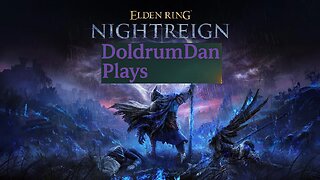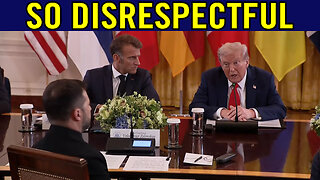Premium Only Content

ROGER WATERS / PINK FLOYD - TRUTH WILL ALWAYS BE THE TRUTH - FakeNewsMedia don't like that...
ROGER WATERS / PINK FLOYD - TRUTH WILL ALWAYS BE THE TRUTH - FakeNewsMedia don't like that…
Marx’s manifesto is famous for summing up his theory of Communism with a single sentence: “Abolition of private property.” But this was hardly the only thing the philosopher believed must be abolished from bourgeois society in the proletariat's march to utopia. In his manifesto, Marx highlighted five additional ideas and institutions for eradication.
1. The Family
Marx admits that destroying the family is a thorny topic, even for revolutionaries. “Abolition of the family! Even the most radical flare up at this infamous proposal of the Communists,” he writes.
But he said opponents of this idea fail to understand a key fact about the family.
“On what foundation is the present family, the bourgeois family, based? On capital, on private gain. In its completely developed form, this family exists only among the bourgeoisie,” he writes.
Best of all, abolishing the family would be relatively easy once bourgeois property was abolished. “The bourgeois family will vanish as a matter of course when its complement vanishes, and both will vanish with the vanishing of capital.”
2. Individuality
Marx believed individuality was antithetical to the egalitarianism he envisioned. Therefore, the “individual” must “be swept out of the way, and made impossible.”
Individuality was a social construction of a capitalist society and was deeply intertwined with capital itself.
“In bourgeois society capital is independent and has individuality, while the living person is dependent and has no individuality,” he wrote. “And the abolition of this state of things is called by the bourgeois, abolition of individuality and freedom! And rightly so. The abolition of bourgeois individuality, bourgeois independence, and bourgeois freedom is undoubtedly aimed at.”
3. Eternal Truths
Marx did not appear to believe that any truth existed beyond class struggle.
“The ruling ideas of each age have ever been the ideas of its ruling class,” he argued. “When the ancient world was in its last throes, the ancient religions were overcome by Christianity. When Christian ideas succumbed in the 18th century to rationalist ideas, feudal society fought its death battle with the then revolutionary bourgeoisie.”
He recognized how radical this idea would sound to his readers, particularly since Communism does not seek to modify truth, but to overthrow it. But he argued these people were missing the larger picture.
“‘Undoubtedly,’ it will be said, ‘religious, moral, philosophical, and juridical ideas have been modified in the course of historical development. But religion, morality, philosophy, political science, and law, constantly survived this change.
There are, besides, eternal truths, such as Freedom, Justice, etc., that are common to all states of society. But Communism abolishes eternal truths, it abolishes all religion, and all morality, instead of constituting them on a new basis; it therefore acts in contradiction to all past historical experience.’
What does this accusation reduce itself to? The history of all past society has consisted in the development of class antagonisms, antagonisms that assumed different forms at different epochs.”
4. Nations
Communists, Marx said, are reproached for seeking to abolish countries. These people fail to understand the nature of the proletariat, he wrote.
“The working men have no country. We cannot take from them what they have not got. Since the proletariat must first of all acquire political supremacy, must rise to be the leading class of the nation, must constitute itself the nation, it is so far, itself national, though not in the bourgeois sense of the word.”
Furthermore, largely because of capitalism, he saw hostilities between people of different backgrounds receding. As the proletariat grew in power, there soon would be no need for nations, he wrote.
“National differences and antagonism between peoples are daily more and more vanishing, owing to the development of the bourgeoisie, to freedom of commerce, to the world market, to uniformity in the mode of production and in the conditions of life corresponding thereto.”
5. The Past
Marx saw tradition as a tool of the bourgeoisie. Adherence to the past served as a mere distraction in proletariat’s quest for emancipation and supremacy.
“In bourgeois society,” Marx wrote, “the past dominates the present; in Communist society, the present dominates the past.”
-
 2:41
2:41
joegecko's Proxy Channel
3 days agoOutrageous: Why is the United Nations flag flying at the cenotaph in Brampton?
166 -
 LIVE
LIVE
FyrBorne
9 hours ago🔴Warzone M&K Sniping: First Impressions of Black Ops 7 Reveal
269 watching -
 8:16
8:16
MattMorseTV
15 hours ago $7.76 earnedTrump’s name just got CLEARED.
57.5K58 -
 2:01:55
2:01:55
MG Show
19 hours agoPresident Trump Multilateral Meeting with European Leaders; Trump Outlines Putin Zelenskyy Meeting
17K19 -
 LIVE
LIVE
DoldrumDan
1 hour agoCHALLENGE RUNNER BOUT DONE WITH ELDEN RING NIGHTREIGN STORY MODE HUGE GAMING
38 watching -
 10:59
10:59
itsSeanDaniel
1 day agoEuropean Leaders INSTANTLY REGRET Disrespecting Trump
12.1K14 -
 16:43
16:43
GritsGG
15 hours agoThey Buffed This AR & It Slaps! Warzone Loadout!
12.3K1 -
 2:05:30
2:05:30
Side Scrollers Podcast
19 hours agoEveryone Hates MrBeast + FBI Spends $140k on Pokemon + All Todays News | Side Scrollers Live
106K11 -
 11:06
11:06
The Pascal Show
13 hours ago $1.06 earned'THEY'RE GETTING DEATH THREATS!' Jake Haro's Lawyer Breaks Silence On Emmanuel Haro's Disappearance!
14K -
 LIVE
LIVE
Lofi Girl
2 years agoSynthwave Radio 🌌 - beats to chill/game to
370 watching